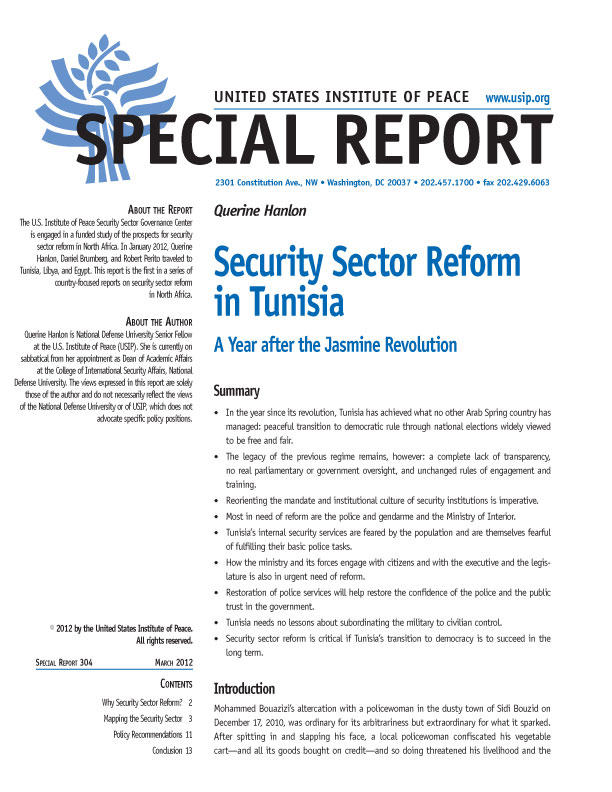The long-term success of Tunisia’s new democracy hinges on efforts to reform its security sector. Most in need of reform are the police, gendarme, and interior ministry.

Summary
- In the year since its revolution, Tunisia has achieved what no other Arab Spring country has managed: peaceful transition to democratic rule through national elections widely viewed to be free and fair.
- The legacy of the previous regime remains, however: a complete lack of transparency, no real parliamentary or government oversight, and unchanged rules of engagement and training.
- Reorienting the mandate and institutional culture of security institutions is imperative.
- Most in need of reform are the police and gendarme and the Ministry of Interior.
- Tunisia’s internal security services are feared by the population and are themselves fearful of fulfilling their basic police tasks.
- How the ministry and its forces engage with citizens and with the executive and the legislature is also in urgent need of reform.
- Restoration of police services will help restore the confidence of the police and the public trust in the government.
- Tunisia needs no lessons about subordinating the military to civilian control.
- Security sector reform is critical if Tunisia’s transition to democracy is to succeed in the long term.
About the Report
The U.S. Institute of Peace Security Sector Governance Center is engaged in a funded study of the prospects for security sector reform in North Africa. In January 2012, Querine Hanlon, Daniel Brumberg, and Robert Perito traveled to Tunisia, Libya, and Egypt. This report is the first in a series of country-focused reports on security sector reform in North Africa.
About the Author
Querine Hanlon is National Defense University Senior Fellow at the U.S. Institute of Peace (USIP). She is currently on sabbatical from her appointment as Dean of Academic Affairs at the College of International Security Affairs, National Defense University. The views expressed in this report are solely those of the author and do not necessarily reflect the views of the National Defense University or of USIP, which does not advocate specific policy positions.